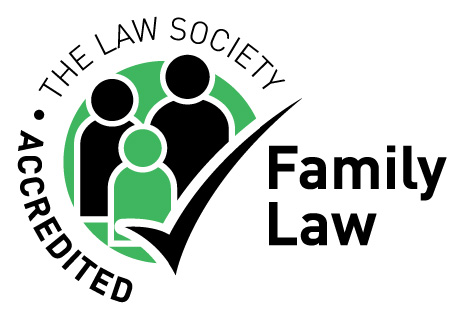 Marriage is going out of fashion. Marriage rates in the UK have halved since 1972 to just over 200,000 annually. Furthermore, the average age of first marriages has increased significantly, from the mid-20s in the 1970s to 31 today.
Marriage is going out of fashion. Marriage rates in the UK have halved since 1972 to just over 200,000 annually. Furthermore, the average age of first marriages has increased significantly, from the mid-20s in the 1970s to 31 today.
Cohabitation on the other hand has risen as an alternative to traditional marriage, with nearly 25% of couples now living together without formalising their union. This trend is not only confined to younger people but cohabitation amongst couples in their sixties and seventies has never been higher.
Cohabitation has lost stigma and become an equivalent life choice. However, there are legal dangers in this. One in five people believe that they have a claim to their cohabitees’ property if they have been cohabiting for five years or more, and that their union has somehow acquired the ‘legal’ status of “Common Law Marriage”. Regrettably that simply is not true. “Common Law Marriage” is only a myth and nothing else.
Whilst the law treats Civil Unions equally to Marriages, the punitive reality is that living together for whatever number of years does not create any legal rights against, or responsibilities between cohabitants, irrespective of whether it morally should. Cohabiting couples do not have the same legal rights as married couples and if separation occurs, there is limited recourse to their ex-partner’s property, pension or financial support.
There are significant differences between the respective legal rights of married couples and cohabitees with regards to:
- Arrangements Upon Separation
- Dealing with the rights and obligations of children
- Treatment by the HMRC
- Death and Inheritance
Consequently, given the lack of legal protection, cohabitants should consider these practical and protective measures in the eventuality their relationships come to an end:

- Enter into a cohabitation agreement. You could avoid expensive and upsetting litigation later by considering these matters in advance and discussing with an experienced family lawyer what can be done. As we have already mentioned there is no specific law governing your rights as cohabitees. It is important for you to consider at the outset certain financial and property matters so as to ensure that you are both in agreement about them. If you do not, they may become the subject of disharmony within your relationship or could even be the cause of you splitting up. With high property prices in London many parents help their children financially to get on the property ladder by contributing towards a deposit. It is important that the parents document, before handing over any funds, the basis on which the money is given or loaned and what is to happen to it if the relationship breaks down. Otherwise, they could be waving goodbye to tens of thousands of pounds.
- Consider a deed of trust when purchasing a property. Be absolutely certain of the decision that you are making to share the ownership of a property. The trust deed changes the legal ownership. It can (and should) be protected at the land registry and can be enforced in court. The purchase of a property is a long term commitment, longer than some marriages and a trust deed reflecting the true ownership must be just that: the true ownership. You should also work out very carefully the proportions in which you will own the property, and don’t forget to include the costs of the purchase in your calculations. If only one party is paying for the deposit or the stamp duty that should be taken into consideration when you work out the percentages. The proportions that you set out in the trust deed are the proportions that will be used to distribute the sale proceeds when the property is sold (or possibly the amounts that each party has to pay for the property to be sold if the property loses value).
- Ensure that they have an up-to-date Will in place. That Will should make financial provision for each other, clarify the future for any children in the relationship and assist with Inheritance Tax Planning.
- Keep pension and life insurance nominations under review and ensure that the death benefits are written into Trust, which can make it easier for your loved ones to access your life insurance money avoiding probate, and Inheritance Tax. That said, the Government is currently reviewing the IHT position of pensions.
- If cohabiting couples decide to marry, it is still prudent to enter into a pre-nuptial agreement if one partner has significant inheritance prospects or brings much more wealth to the marriage than the other. A pre-nuptial agreement can give clarity about which assets are to be shared, and which ring-fenced if there is ever a divorce.
Conclusion
The Law Commission has recommended change in this area and proposals to bring our laws in line with modern family types is currently supported by many MPs across the spectrum, however couples still need to be aware that since no rights exist through ‘common law’ marriage that they should take appropriate legal steps to protect themselves and their families.
Vijaya Sumputh, is a Partner at Curwens leading a team with over 55 years of experience. Our Family Law Team can provide you with expert legal advice and representation on a wide range of family law matters. They are very familiar with the local court system and will provide you with the best possible legal advice and representation in addition to advising you on the best course of action to take in your circumstances.
Please email or call us on 020 8363 4444 to discuss whether we can help you.






 Marriage is going out of fashion. Marriage rates in the UK have halved since 1972 to just over 200,000 annually. Furthermore, the average age of first marriages has increased significantly, from the mid-20s in the 1970s to 31 today.
Marriage is going out of fashion. Marriage rates in the UK have halved since 1972 to just over 200,000 annually. Furthermore, the average age of first marriages has increased significantly, from the mid-20s in the 1970s to 31 today.











